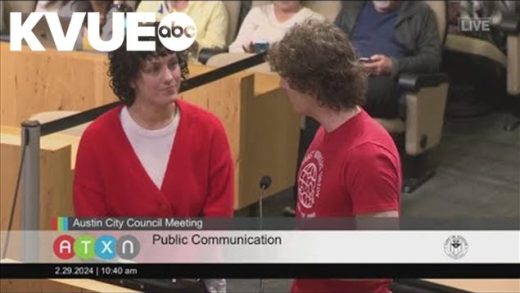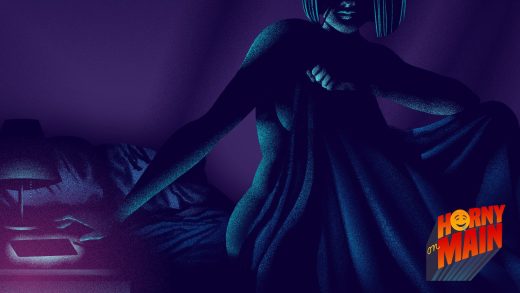This week, the American Library Association (ALA) finally released a statement about the uptick in book challenges across the country. In it, they not only note the fact most of the challenges are coming for books by and about people of the global majority, as well as queer people, but they quantify wha they’ve documented: 155 unique censorship incidents since June 1. The number is low, and given that these are ones either submitted to the ALA’s Office of Intellectual Freedom (OIF) or ones that the OIF documents, it’s not a stretch to say it’s probably twice that number, if not more. Because so many of these happen on a very local level, they aren’t always reported, and even when they are, they may only be a line or two in a short news report about something else. That number also doesn’t include any of the quiet or soft censorship which happens.
What’s maybe most noteworthy, though, in the statement is that there’s no note on action. The OIF offers direct support and consultation to those who seek out their services during a challenge — 120 of the 155 documented cases since June have had their help — but there’s no actionable steps laid out for what can be done without their intervention. What can an average citizen do? What can an average librarian or school board member or educator do? Actionable steps are essential to include here, especially as the ALA makes nice, sharable graphics with the information from the statement. Sharing this information on social media is great; sharing this information on social media doesn’t put an end to the challenges nor offer anyone the opportunity to do something beyond report cases to the OIF. That’s a step, and a good one, but it’s not going to do anything as extremists show up at schools and libraries.
We’re well beyond the point of depending on one organization to do all of the work and for all of that work to happen outside the public eye. More needs to be done externally that’s actionable. “Awareness” campaigns like Banned Books Week aren’t enough. Groups like Moms for Liberty, along with other national and local right-wing groups, have their talking points down (see: “obscenity,” “pornography,” and other similar words being used in every single challenge), have their targets selected (“critical race theory,” “social emotional learning,” and specific book titles that have shown up again and again), and deploy their tactics in ways that are wide open (show up to school board meetings, read passages, make signs, run for local boards). There is a lot of money and energy behind these groups.
Change happens when we unite and take action, and it’s well beyond time for more than numbers and words. Book challenges will continue through the rest of 2021 — most will be overlooked or not highlighted because it’s a ripe time to take a break from bad news — but they’re going to amp up even more in the new year. Here’s to hoping ALA and other organizations with power behind them use that to equip as many people as possible with the language, the actions, and the means to stand up against censorship. More, knowing what the groups behind these united movements are and having ready access to what it is they’re doing or taking aim at would put tremendous power into the hands of every person invested in protecting First Amendment rights. An organization like ALA, tasked with being a professional leader for information professionals has the capacity to not just advocate behind the scenes for intellectual freedom and information dissemination; they can be leaders in ensuring that anyone invested in the same principles has quick, accurate, and sound information about the people and groups working in opposition to those values.
Of course, you don’t have to wait for an organization to offer that. There are tons of ways you can put in effort to protect intellectual freedom, whether it’s a few minutes or a few hours. Our toolkit for how to fight book bans and challenges can get you started.
Here’s a look at this week in book censorship news. There are some positive updates, along with a slew of stories that offer less hopeful resolutions.
- Leander Independent School District in Texas — the community which has been at the center of long-running censorship attempts — ruled on a number of books that will be removed from classrooms and as choice reading options. The district’s announcement points to how they offer classic and contemporary literature off a wide array of viewpoints and believe in those ideals, but they’re removing books like The Handmaid’s Tale, the graphic novel edition of Shirley Jackson’s The Lottery, and a slew of books by and about Black, Brown, and queer people. (Note: I can’t find the original source, but the image linked to via Twitter appears to be an email, so chances are it hasn’t hit media yet or has so in a way that’s not as clearly laid out as this).
- Keller, Texas, Independent School District officially removed Out of Darkness from their shelves.
- A parent who can’t wear her mask correctly is challenging Monday’s Not Coming in the Lyons Township High School district in La Grange, Illinois (suburban Chicago).
- York, Maine, has had It’s Perfectly Normal challenged by an adult who doesn’t even have a kid in the district. Called it.
- Manawa, Alaska, has a challenge to John Green’s Looking for Alaska. It’s been a while since this title’s made the challenge rounds, but it’s in more than one this week.
- “John Struckhoff, a Lindbergh citizen, said he ‘briefly reviewed’ the list of challenged books and has found ‘no value that can equate to workforce or societal contribution, just an attempt to normalize a bunch of social emotional sexual behavior garbage.’” Gotta love a “brief review” and the buzzword mafia. Challenges to a pile of books in the St. Louis area still under way, and the good news on this one is that the process of review is working.
- Canyons schools in Utah are still reviewing the books challenged there and their reconsideration policy is a solid one. This particular piece highlights the policy and procedures, as well as a link to a local censorship group’s website with books they’re taking aim at.
- The chair of Moms for Liberty in Hernando County, Florida, complained about a book there, as did some other citizens. Right now, the group is reviewing over 100 book titles and lodging complaints against ones they don’t like. One of the complaints was against Looking for Alaska, and this particular comment is a real gem: “The LA Times calls this a ‘must-read for high school students.’ Are we actually turning into liberal California now by allowing this and other books like it in our elementary libraries?” (This article is a challenge to read because it’s poorly written, but it doesn’t appear Green’s book is actually in elementary school libraries).
- Campbell County, Wyoming’s public library is still working through their host of challenges, but in great news, they’re not listening to the appeal on decisions for three of the books which were deemed appropriate to be put back on shelves. Side note: I have an essay in The V-Word, and the idea that a book about virginity wouldn’t include language about reproductive organs is worth the price of reading this piece alone.
- The Austin American-Statesman has a nice piece on the types of books being challenged across the state.
- Chair of a Moms for Liberty group challenged a bunch of books under Tennessee’s new anti-“critical race theory” legislation and lost. The books won’t be pulled, including a biography of Martin Luther King Jr. and one on Ruby Bridges.
Let’s end this on a really positive note: a library in small town Pennsylvania had their funding cut when library commissioners (AKA the board) learned that an LGBTQ+ group met in one of the library’s meeting rooms. The community responded to this by raising tens of thousands of dollars for the library — far more than the budget that was cut.
At the end of the day, the people who are loudest are the ones who get the biggest news stories. But it’s clear that they don’t speak on behalf of the majority.











